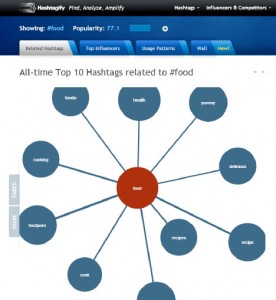The Metaverse Has No Clothes
Every depiction of the metaverse looks awful to me. It’s billed as the place where we’re limited only by our imagination — and then executed to prove we have no imagination whatsoever.
I’m not the only one. Exponential View’s Azeem Azhar shared Google search data showing that interest in the term “metaverse” shot up when Facebook announced its name change, then plummeted faster than an Omicron wave. Comedian Ronnie Chieng jumped on the metaverse-dissing bandwagon this week, responding to a clip touting the opportunity to use Powerpoint in virtual reality with pure, unadulterated sarcasm:
“Ohhhh thank GAWD there will be POWERPOINT in the METAVERSE. I can’t WAIT for the immersive experience of feeling like I’m INSIDE A PIE CHART. So let me get this straight. The metaverse gives us endless possibilities and you want to have virtual meetings?!?”
Have we forgotten that the metaverse is supposed to suck? In every sci-fi depiction, it’s either dystopian, created to escape dystopia, or both. Which one are we admitting to?
To be fair, I’m old, and probably more crotchety than I realize. After all, as Douglas Adams said, “Anything invented after you’re 35 is against the natural order of things.”
I also understand that it’s naïve to write off a new technology for being too big, heavy, clunky, low-resolution, or expensive. It is the nature of technology to get smaller, lighter, sleeker, higher-resolution, and cheaper. Maybe the Oculus headsets will be replaced by contact lenses in the next few years and the ease of use will skyrocket.
But my objections are not exclusively about these technological limitations. They are about the fundamental disconnection the metaverse represents.
Zuckerberg et al would argue that the metaverse is all about connection: you can spend time with people you can’t otherwise spend time with, in a more profound way!
That’s fair. The phone offers a greater connection than an email. Zoom offers a greater connection than the phone. Hanging out together in the metaverse may well offer a greater connection than Zoom.
Then again, it may not. Your avatar’s unnatural facial responses to my joke or my sad story may well land in the uncanny valley, leaving me with a sense of unease about how a given interaction played out.
Either way, the disconnection to which I refer isn’t about how we catch up with old friends from the other side of the world. The disconnection to which I refer is the disconnection with ourselves.
When my attention is on my screen, whether handheld, 32-inch, or headset-based, I am not present in myself. The language we use reflects this: We say I’m going into the metaverse. What part of us is going in? What part of ourselves are we leaving behind?
Being present for the people in our lives is one of the most important things we can do with our precious, unrenewable time on this planet. To see and be seen. To hear and be heard. To love and be loved.
It is also one of the hardest things to do. It requires us to be open, to be vulnerable, to risk being hurt.
The metaverse may give us immersive Powerpoint or more rapid cybersecurity training. But it will not make the world a better place. It will not make us feel more at peace, more in community, more centered, more whole. Only we can do that, by showing up fully to our lives. Will we?
(64)







